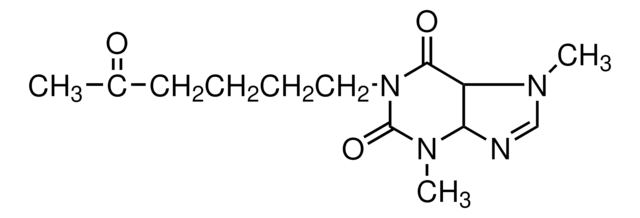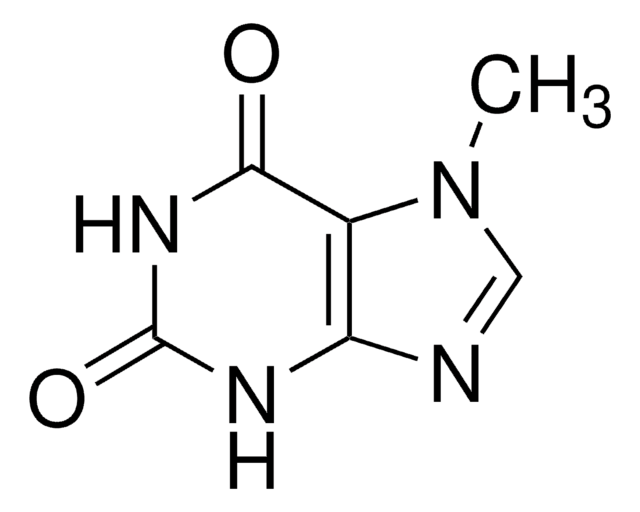1508901
USP
Pentoxifylline
United States Pharmacopeia (USP) Reference Standard
Synonym(s):
3,7-Dimethyl-1-(5-oxohexyl)xanthine, Trental
About This Item
Recommended Products
grade
pharmaceutical primary standard
API family
pentoxifylline
manufacturer/tradename
USP
application(s)
pharmaceutical (small molecule)
format
neat
SMILES string
CN1C=NC2C1C(=O)N(CCCCC(C)=O)C(=O)N2C
InChI
1S/C13H20N4O3/c1-9(18)6-4-5-7-17-12(19)10-11(14-8-15(10)2)16(3)13(17)20/h8,10-11H,4-7H2,1-3H3
InChI key
MQGNNJQTNFHNHK-UHFFFAOYSA-N
Looking for similar products? Visit Product Comparison Guide
General description
Application
- Pentoxifylline Compounded Oral Suspension
- Pentoxifylline Extended-Release Tablets
Biochem/physiol Actions
Analysis Note
Other Notes
related product
Signal Word
Warning
Hazard Statements
Precautionary Statements
Hazard Classifications
Acute Tox. 4 Oral - Lact.
Storage Class Code
11 - Combustible Solids
WGK
WGK 3
Choose from one of the most recent versions:
Certificates of Analysis (COA)
Sorry, we don't have COAs for this product available online at this time.
If you need assistance, please contact Customer Support.
Already Own This Product?
Find documentation for the products that you have recently purchased in the Document Library.
Our team of scientists has experience in all areas of research including Life Science, Material Science, Chemical Synthesis, Chromatography, Analytical and many others.
Contact Technical Service



